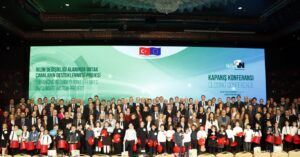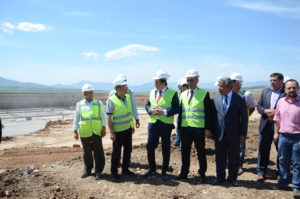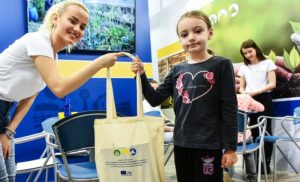
Technical Assistance for Increased Public Understanding and Enhanced Stakeholder Capacity on the Required Joint Efforts on Climate Action
İklimIN began its implementation with the aim of increasing national and local capacity to prepare medium and long term climate actions towards climate resilient and low carbon development, increasing public understanding to foster joint climate action efforts which will result in gradual alignment with the EU climate policy

Strengthening Vocational Qualifications Authority (VQA) and National Qualifications System (NQS) in Turkey
It can be claimed that the labour markets are required to ensure the provision of formal and non-formal education and training, to support life-long learning, strengthening the relationship between education and employment, and facilitating harmonization with the European Qualifications Framework (EQF). Within this scope, the project aimed to

Technical Assistance and Supervision for Kahramanmaraş Water and Wastewater Project
The quality of the drinking water and its consumption is one of the most critical topics for the European Union and the whole world. Based on this context, the programme aimed to accelerate Turkey’s accession to the EU by enabling Turkey to achieve a high level of environmental

Capacity Building of Relevant Institutions under the Sector Reform Contract for Education Reform in Serbia Strengthening links with Employment and Social Inclusion
The project’s overall objective is to ensure timely, efficient and effective reforms in the education sector as part of the country’s preparations for EU accession negotiations under the Instrument for Pre-Accession. WEglobal is working with the Ministry of Education, Science and Technological Development, the Institute for Development of

Technical Assistance for Promoting Women’s Employment in Turkey
The employability of women has been a challenging issue in Turkey for decades. The labour market of women needs to be improved in terms of the existing capacity to design, develop and implement policies to attract and retain more people in employment, particularly by increasing the participation of

Capacity Development of Employees and Employers via Information and Communication Technologies (ICT)
In Turkey, in common with all other countries, both employers and employees need to be aware of, and be able to use, the latest ICT tools in the workplace to improve the efficiency and competitiveness of their businesses and take best advantage of personal development opportunities. This project,

